How do I know when my company is ready to scale?

To me, scaling means growth over 50% per year, which can become exponential in a few years. That kind of growth requires that a company be very developed in its internal processes and systems. And it must also have a serious and experienced management team.
Planning this growth is complex and will usually also require outside capital. You also need complete systematization in each area of your business, not just to “Do it” but also to hire people, train people and manage those people too. So, with five departments this means four times five total procedures or systems to “do it” (i.e., sell, delivery, generate leads), hire, train and manage (by the numbers). Or about twenty total systems. These may be simply a few pages, and I usually recommend a flow chart as a visual helps people learn and improve these as more employees join the company.
Shifting gears as a company moves to rapid growth is very difficult, and few figures it out...
How long does it take to prepare to become a founder?

I spent 10+ years preparing to launch my first big company opportunity at age twenty-nine. Having already started four different businesses before I finished high school, I had some basic experience and knowledge. I worked as a software engineer in my first full-time job after college. I worked on both mainframes and the first major Apple computer (Apple II). I then quickly move up the ranks to Senior Software Engineer, Architect and Vice President of Engineering by year five of my professional career. That is exceptionally fast because I read every book available, did consulting on the side, worked long hours and had little social life. I also had the benefit of working in a newer field (microcomputers) where no one had five or ten years more experience than me because the field was new and rapidly changing too. I had been programming computers since age sixteen, which was rare then, so even starting my first job I had the equivalent of a couple of years full-time...
Do you know any platform where people can study the skills to run their own companies?
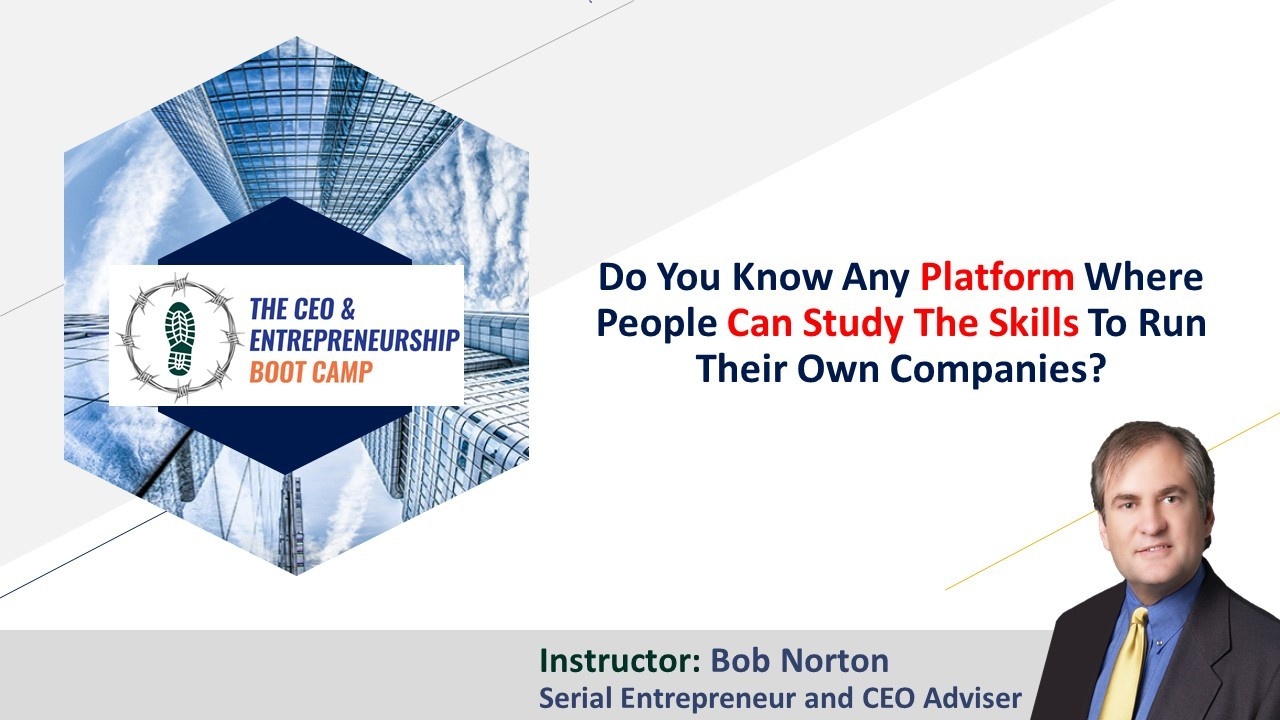
Yes, I personally have created two platforms with about 40 courses total for this purpose, and a third set of courses for executive teams preparing to scale a company. There are at least 30 skills an Entrepreneur/CEO should learn before founding a company, not that they can be expert at all or even most, but all these skills will be needed on a team.
We have trained thousands of CEOs from over 40 countries at The CEO Boot Camp since the first one in 2004. This program is for aspiring and active entrepreneurs to learn what they need to become good CEOs and entrepreneurs. It has 12 foundational courses on the things required to design a business, build a product and launch. We find even very experienced CEOs do not know 50% of what we teach there.
 | Learn more about our Growth and Scaling (GSP) |
| For a free video consultation call on what your |
The second platform unbundles all of...
What Are Some Key Components That Will Make An Angel Investor More Likely To Invest In One’s Startup Company?
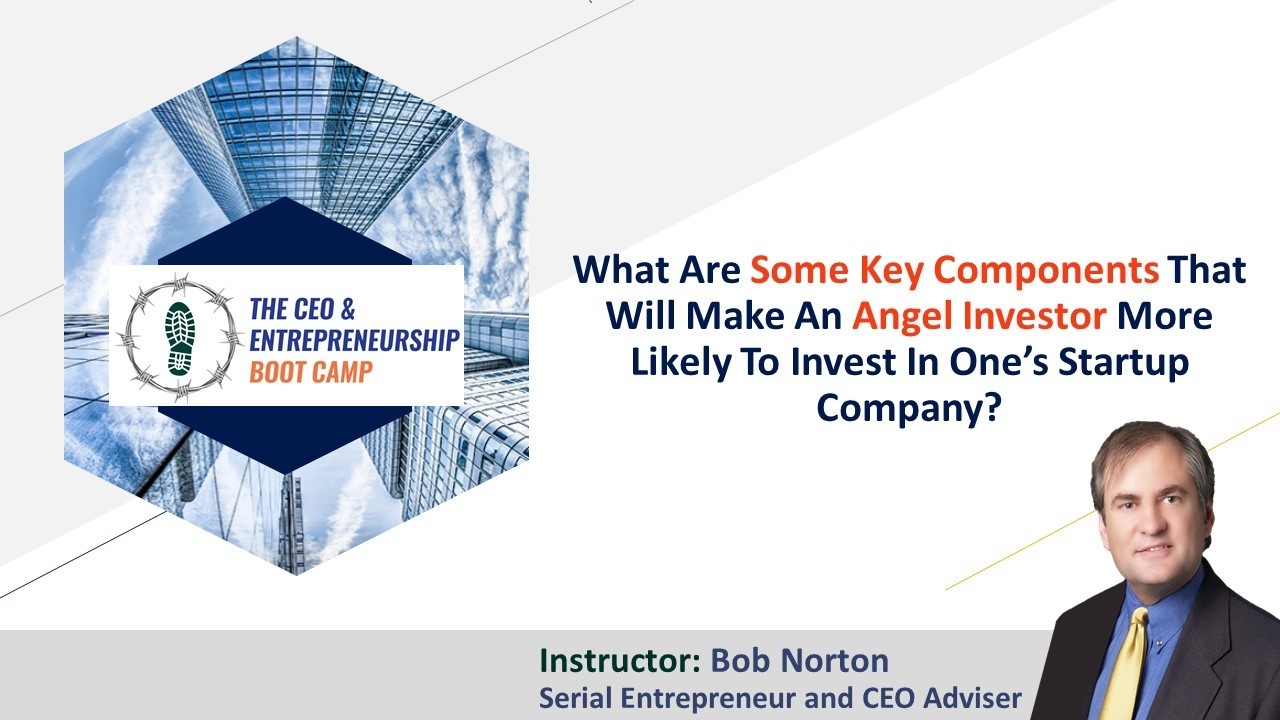
One of the good question and very complex too. Here are my top 12:
- Strong CEO and Team - This is 50% as a strong team can fix everything else. And a CEO that has built and exited a company before, ideally. Young, new entrepreneurs will need a stronger team, advisers and board.
- Large market opportunity. Usually, $1 billion plus in 5 years.
- Clear market entry strategy, going after a niche (small market) and expanding into other niches or broader market after 1–2 years to make product and other infrastructure robust.
- Creation of barriers to entry, or sustainable competitive advantage. We teach 17 ways to do this beyond just intellectual property at CEO & Entrepreneur Training
- Gross margins over 50%
- Product sales with some data on cost of customer acquisition, conversion and life-time value (resales)
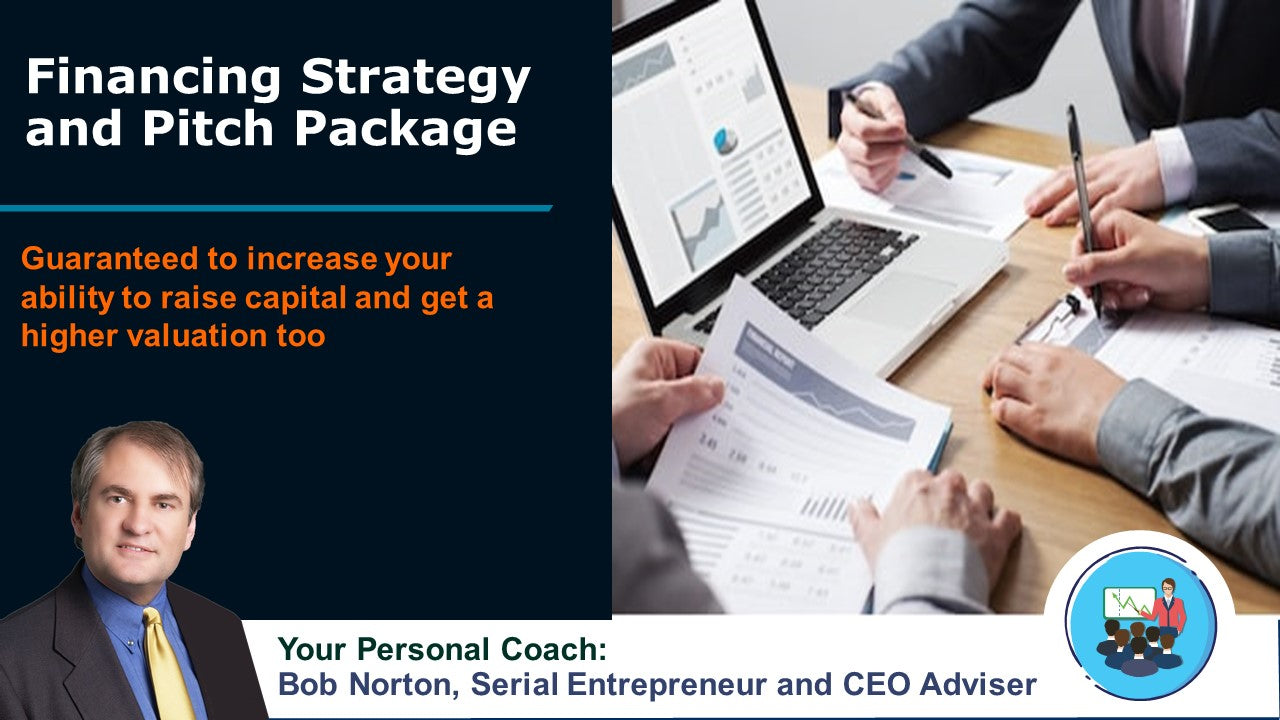
- Recurring revenue from same customers
- A financing strategy that shows the potential step up in stock as new milestones are reached, and...
What do the most successful businesses have in common?
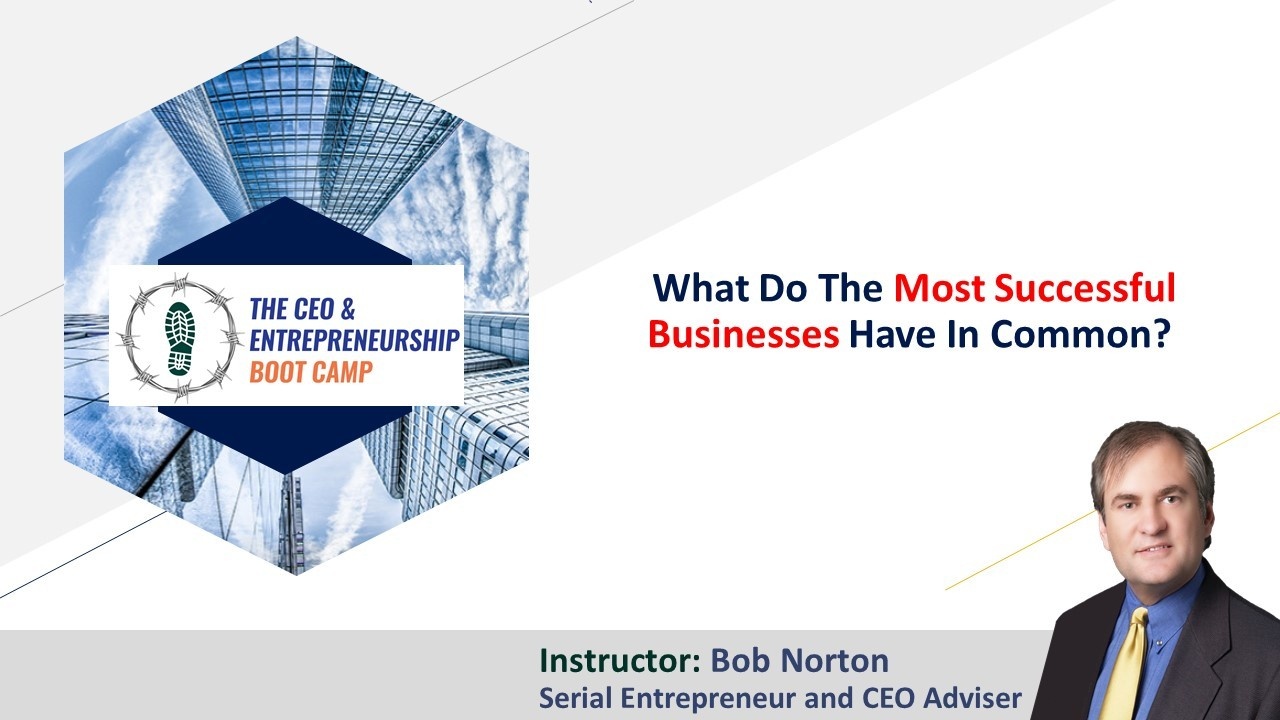
This is a simple but good question, but does depend on what your definition of “successful” is, too. A lifestyle business is successful if it provides a decent living for the owner. Most freelancers, consultants and coaches are this kind of business. So are most local retail stores. They sell commodity products and services like millions of others.
To me, a successful business is one that can reach multi-millions in revenue, create jobs and has good margins for profit that can be reinvested to grow the business. This kind of business can grow exponentially and reach hundreds of millions in sales over time. These create true wealth and even generational wealth to leave to your children. And can have a big impact on the world too. What these businesses have in common, almost always, is:
- A differentiated product (or service) that provides high value to the customer compared to its cost.
- Barriers to entry that prevent hundreds, or thousands, of others from...
What are the benefits of having a business mentor as an entrepreneur?
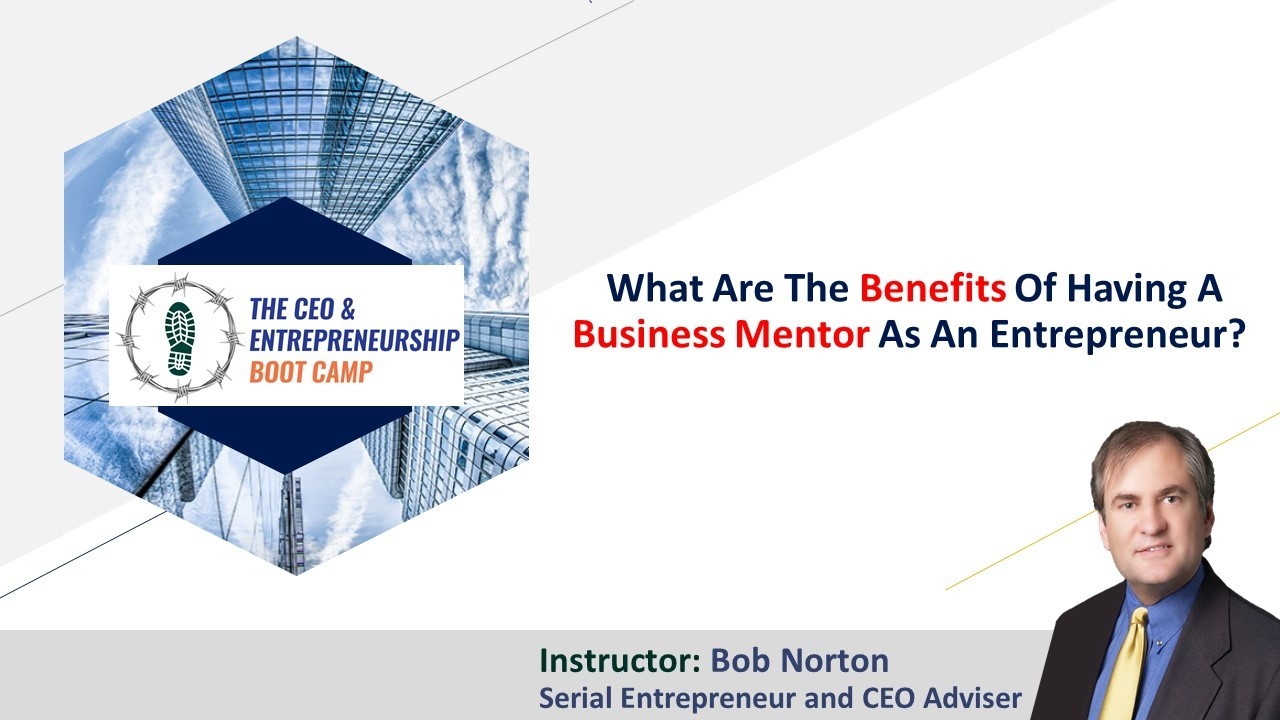
There are too many to list individually, but most come from having someone with experience. People often confuse smart with experienced and think they can do anything new well. Science and logic says this is not possible with anything complex.
Few things are as complex as entrepreneurship. Hardly anyone would read a book on flying and hop in a plane alone to fly it. Or try to climb Mount Everest alone. But everyone thinks they can build a new business for some strange reason. As a result, we have an 85% failure rate of new businesses. Ones with coaches and mentors greatly outperform because they avoid the hundreds of common mistakes and pitfalls, some of which can be fatal to a business. These companies where the CEO and executives use coaches even outperform the S & P 500 (mature companies) by a wide margin. They are working on constant improvement of the team, which makes all the critical decisions. And this reduces turn-over, challenges people and gives them career growth...
What is the important quality or trait to be successful in business?
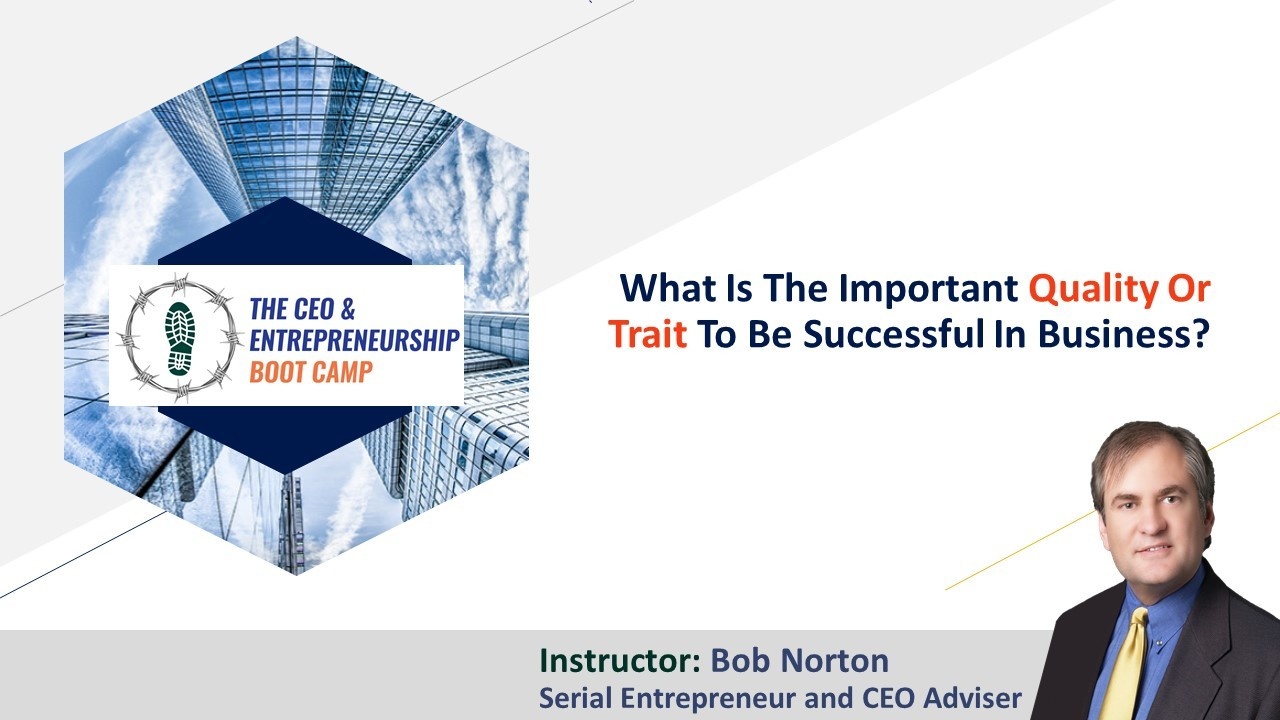
I see the question “What one quality must an entrepreneur have?” and I never answer it because it is a dumb question. Listing one would be imprudent, as any entrepreneur needs many qualities to be successful. No one will ever make it on a single quality, and I would not want to mislead people.
Here is my list of several that I believe are all necessary, not optional, to create a significant business:
- Raw intellect to do critical thinking and analysis so they can make data driven decisions
- Management experience to hire, fire, coach and manage people. I do not recommend new college graduates start a company without getting some of this experience first.
- Flexibility and open mindedness to listen to all input and weigh it appropriately based on that person’s relative experience in that area.
- The commitment and resilience to work through hard times. This means emotionally, mentally, financially, etc. Success is never a straight line, and almost every company will...
What are The Options For A Small Company That Needs To Raise More Capital, But Cannot Dilute Its Present Shareholders Any Further?

Debt if there are assets or cash-flow or a “Play or pay” round. A tactic to force people to ante up a pro rata share because the price is lower than the last one (down round) and so those that do not put in their pro rata share are diluted significantly.
Think about it. If you bought in at $1.00 and the company made little progress, but still has lots of potential, then if the Board/CEO offers new stock at $0.30 you almost have to buy if you still believe in the potential or just the new money will get 3X more stock for their new investment, all effectively taken from the portfolios of the people that did not participate in the round.
Not the friendliest tactic, but sometimes warranted if there are no easy sources. And it will also save the CEO and team months of potential work, but not requiring newer investors - who might force the price down based on the lack of progress anyway. See my blog for many more hints and tips on raising capital.

What Control Do I Lose Once I Start Taking Money from Outside Investors?

You generally only lose control when outside investors own over 50% of the voting shares. That said, many deals contain “Covenants”. Even a bank will request certain things never be done without their approval. For practical purposes, because the management team is likely to vote together unless there are serious problems, when the outside investors collectively own 50% of the remaining shares is what matters. Because if the management team owns 33% (of voting shares), and the outside investors own 66% they would need a lot of unity to override the founder’s board and share votes. In this example, the outside investors would have to have ~75% of those outside shares to be voting 50% of all shares.

Click here to get this Financial Package
These things start to matter if things are not going well for some reason. Rarely is there an attempted coup, or do board votes make critical (split) decisions, when things are going well. And if things are not going well,...
How Long Does It Take to Raise Venture Capital Typically?

Learning and preparation should start at least a year in advance. Once you are prepared, allow six months. It could be shorter or longer, that will depend on your deal and the market at the time in that industry space. Hot deal areas can get done quickly, most will be several months at least.

Click here to get this Financial Package
Pitching and corralling investors with interest is not in your control. I can take three to six months. Often the partners become unavailable (on their yachts and at vacation homes, presumably) for summer and winter holidays.
 | Learn more about our Growth and Scaling (GSP) |
| For a free video consultation call on what your |
Nothing you can do because usually a partner meeting and vote is required to finalize any deal. Due diligence can take sixty days. Generating a sense of urgency is always a challenge as they have a hundred deals they can do every...




